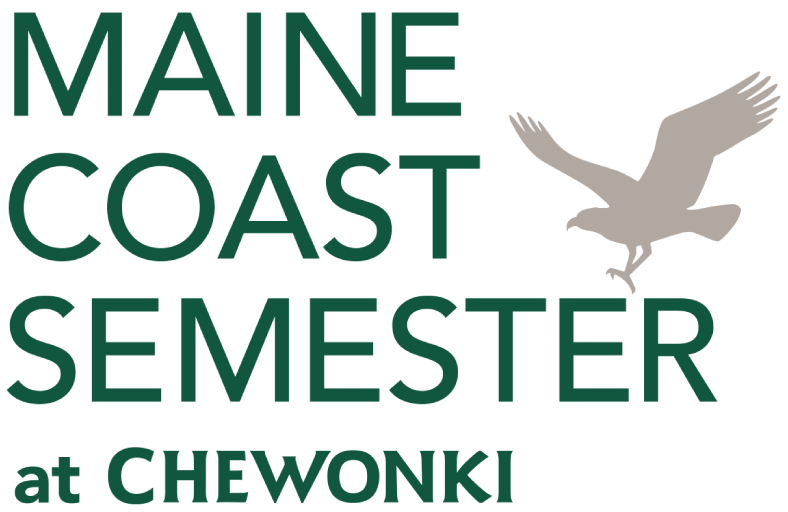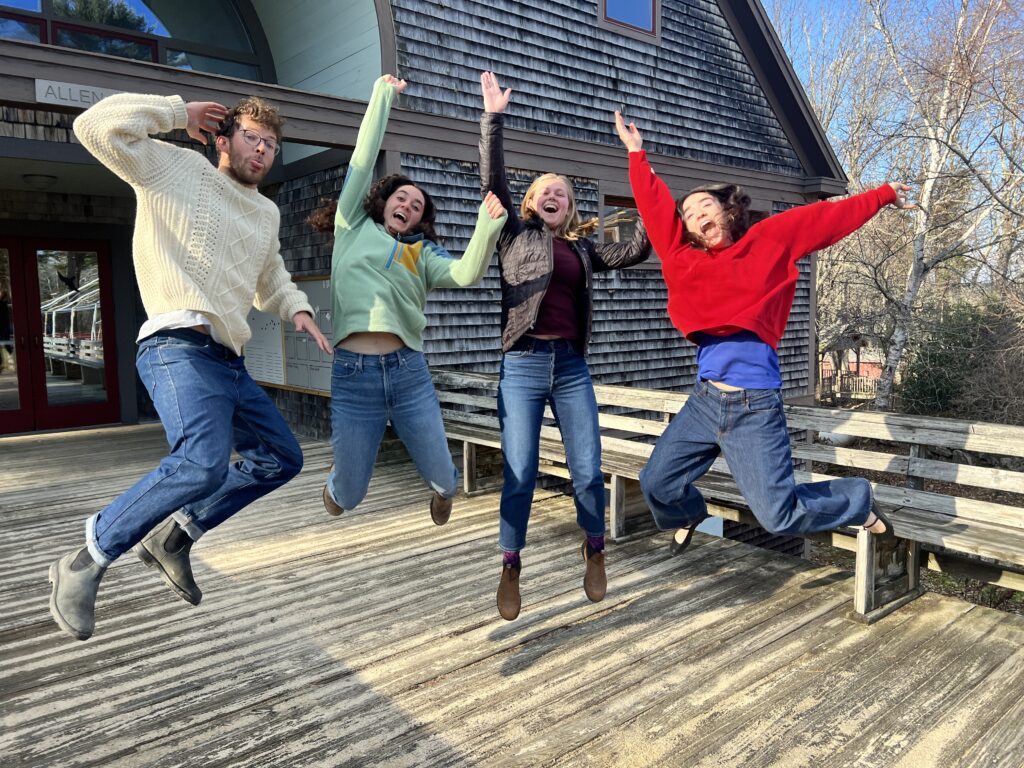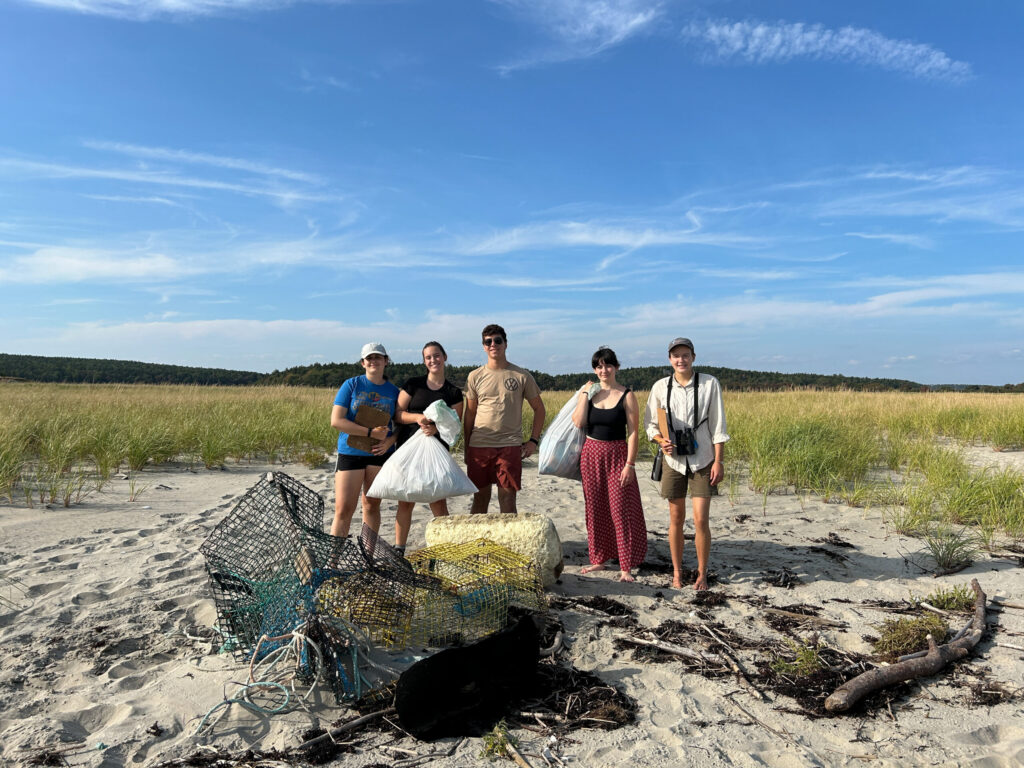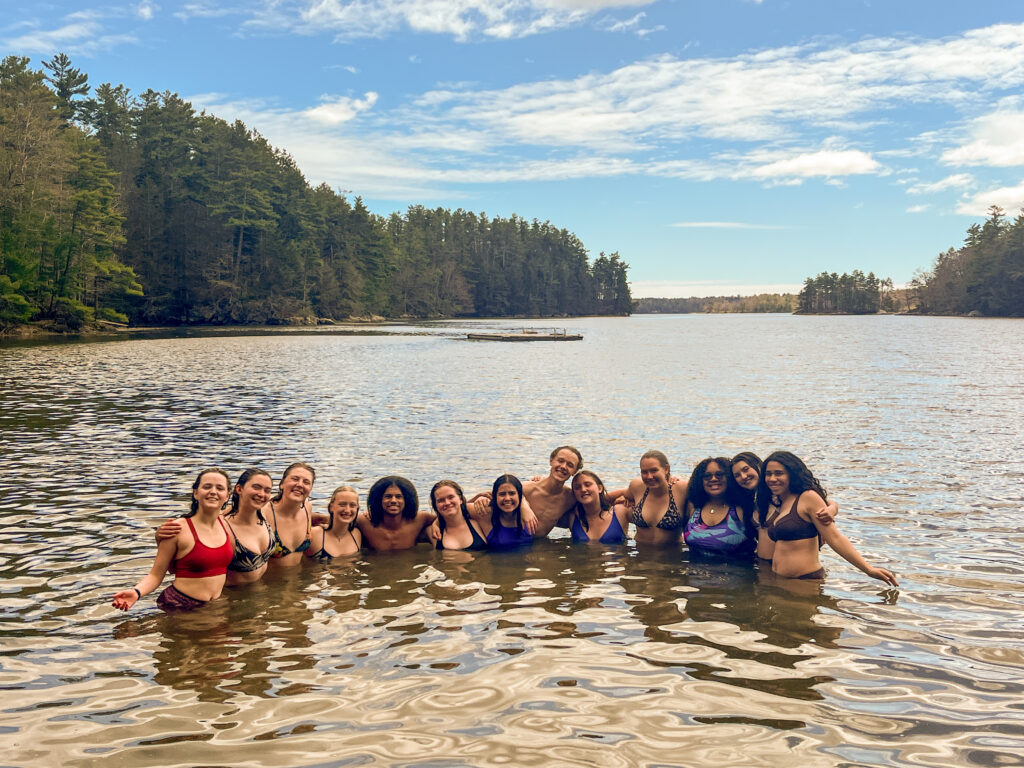“Those taxes were completely unfair!”
“It wouldn’t have happened without the French and Indian War.”
“Oh, no, no, no!”
“That stunted the whole American economy!”
“Okay, it was some mix of ideological and economic.”
These high school juniors, shod in a diverse collection of flip-flops, Bean boots, Crocs, and untied sneakers, are intensely engaged in learning 18th-century history. “I love the class,” says one student. “It’s fast. It makes us pull our ideas together.”
Andrew Hunter, U.S. history teacher for Maine Coast Semester at Chewonki moves quickly around the room as his students prepare to debate. He prods, challenges, encourages. He crouches down to tell one group to develop an idea more thoroughly and cajoles another to draw more specifically on their readings. “Look not just at content but also the context around the sources,” he says. Teaching Fellow Mikaela Dalton backs him up. “Have you got your evidence? Are you ready?” she asks the students, looking at each in the eye.
Hunter teaches with a sense of urgency, restlessness, and excitement that any historian would admire. It’s a rainy Monday morning but in Hunter’s A.P. class, the energy sizzles.
With his cap tipped back on his head and youthful vigor, Hunter looks a lot like his students, but when he speaks, it’s clear he is in charge. “Okay, folks, take a seat,” he calls out, throwing his voice across the chattering students like a lasso. They settle in and look toward him. “Today,” he says, “you are going to debate the roots of the American Revolution.”
His class has been reading primary source documents to learn about the events and ideas that led early American colonists to challenge England’s trans-Atlantic rule. One after another, each of the three groups stands in front of the class to make an eight-minute pitch.
One group claims that the stresses of the French and Indian War sparked the revolution. Another blames economic forces. A third group asserts that ideological and social transformations led to rebellion.
After the rapid-fire presentations, the students caucus within their groups to hash out key ideas before an open debate. Fragments of passionate conversation fill the room.
“The English were scratching for pennies!” says one student representing her group. “People who were oppressed came here to be free and then became oppressed again,” counters another. “We believe the revolution was the direct effect of the French and Indian War…and the desire for control over the North American continent,” explains a third representative.
Hunter, who earned his bachelor’s degree in political science and a master’s in education at Tufts University, tries to illuminate the past and how it is shaping contemporary society and the future. As an undergraduate, he considered a career in law or politics, but working for two education programs in under-resourced Boston-area communities reset his sights toward education.
“A classroom offers a faster way to have an impact,” he says, adding with a smile, “and I’m impatient.” He benefited from “great role models with a sense of purpose and efficacy,” including professors and mentors as well as his mother and grandmother, both teachers (his grandmother’s hefty gray stapler sits on his desk every day), and his father, a proponent of community banking who served in the Peace Corps and believes “good, competent people should be good public servants,” says Hunter.
Teaching at Maine Coast Semester “feels great,” he says. He is happy to be back in Maine, where he grew up. “I’ve always been a country guy,” he says, although, after five years in Boston and three at an excellent Massachusetts public school, he brings “a broader horizon, a better sense of perspective.” He enjoys the close relationship between teachers and students here. Maine Coast Semester’s blend of academic and experiential learning suits him. (It might help that his partner, Annie King, is also a teacher, and a Maine Coast Semester 42 alumna.)
The debate about the causes of the American Revolution continues to rage in the class and there is no clear winner. Time is up– for today. The students keep arguing as they gather their books and pencils, spill out into the hall, and careen down the stairs.
This is living history.















